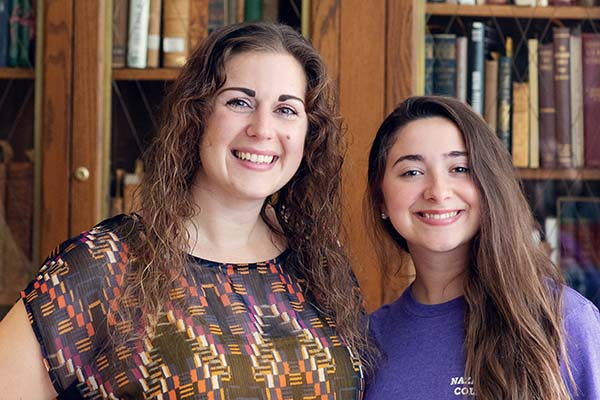LIFE OF THE MIND
Call the Midwife
Faculty-student pair conduct research on the best practices for treating postpartum depression.
by Rebecca Rouland, Ph.D.

According to the Centers for Disease Control, nearly 4 million infants are born in the United States each year. Bringing home a baby is a big adjustment, and not always an easy one. For some parents, the birth of a child may bring on feelings of intense sadness, loss of interest in activities, and changes in mood, behaviors, and thoughts. If these symptoms affect a parent's life and are persistent, that parent may be suffering from postpartum depression, a condition that affects nearly 20% of new mothers in America.
Right now, we don't know the best ways to screen for or treat postpartum depression, particularly in rural communities. Historically, there has not been a strong focus on women's mental health, including perinatal mental health, in the U.S. As such, I have made addressing health disparities in sexual, reproductive, and perinatal mental health the primary focus of my research agenda. For my dissertation, I conducted a study focused on geographic disparities in postpartum depression from a social work perspective. I learned that understanding, screening for, and treating postpartum depression reaches across a wide range of fields and providers. The study made clear that we need an interdisciplinary approach to dealing with postpartum depression.
Once at Nazareth, I wanted to capture the institution's commitment to an interprofessional perspective through this work. Together with Bachelor of Social Work student Izabella Kimber '21, we have interviewed providers from various professions to best understand how to identify, screen for, understand, and treat postpartum depression, with the goal of promoting evidence-based practices among all who work with individuals experiencing postpartum depression. We want to show how providers can best help people experiencing postpartum depression and, in turn, benefit their children, partnerships, families, and community.
To collect data, we conducted in-depth, semi-structured interviews with providers — including psychiatrists, gynecologists and obstetricians, physicians, psychiatric nurse practitioners, nurse practitioners, registered nurses, midwives, psychologists, mental health therapists, counselors, clinical social workers, and psychiatric or mental health social workers — who treat parents experiencing postpartum depression. Participants share their expertise related to cultural considerations of postpartum depression; contextual factors of postpartum depression, including risk factors; approaches to treatment and intervention; and how to best prepare future practitioners to treat postpartum depression.
Izabella's involvement in this study is made possible in part by the Nazareth College SPARK Grant program. The grant compensated Izabella for the time she spent interviewing providers and transcribing the interviews for data analysis. The SPARK Grant also permitted Izabella to develop more in-depth research skills through coursework and networking with other SPARK Grant recipients. Such skills are invaluable as Izabella prepares for graduate studies and the future social science research projects she may lead. Izabella shared that learning how to conduct interviews will also benefit her in her future dream profession as a forensic interviewer.
We detected emerging themes relating to geographic differences, social justice and human rights, and the need for more mother-specific services. We anticipate that the findings from the project will make a difference by informing how postpartum depression is viewed, understood, and addressed. Izabella and I presented our findings specific to a social justice and human rights perspective on postpartum depression at the New York State Social Work Education Association (NYSSWEA) conference last fall.
Rebecca Rouland is an assistant professor in social work at Nazareth College. Izabella Kimber is a junior who recently received the 2019 New York State Social Work Student of the Year award.

Rebecca Rouland and Izabella Kimber '21